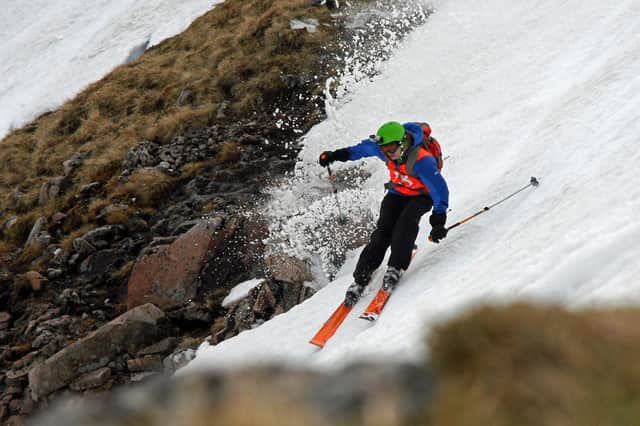Coronavirus in Scotland - doctors and mountain rescue teams ask extreme sports enthusiasts to play it safe


Case in point, the veritable feeding frenzy of surfers last month at Snapper Rocks on the Gold Coast of Australia, when perfect six-foot barrels started spinning across the bay thanks to a powerful typhoon swell. Pros including Mick Fanning, Leo Fioravanti and Mikey Wright were among the hordes of waveriders who weighed up the chances of copping a dose of coronavirus and the chances of getting a ten-second tube ride and decided that leaving the house was worth the risk. Some of the footage of Fanning and co is truly jaw-dropping (you can check it out on the Surfer magazine website) but in no way could any of the surfers present have been said to have been “avoiding crowds.”
During the current crisis, however, there are other things – beyond the obvious concerns over catching or spreading coronavirus, that is – that outdoor sportspeople should take into account before making plans. On 17 March, the Scottish Mountain Rescue Service issued a statement that read: “Scottish Mountain Rescue teams are continually reviewing their action plans to ensure they can provide a continuous service within Search & Rescue to safeguard both teams and the service to the general public. Being in the outdoors has many benefits and we are usually very happy to encourage individuals to get outdoors and enjoy the beauty of Scotland, however during this ongoing situation we ask you not to take any unnecessary risk when enjoying the outdoors. Perhaps go on adventures you are familiar and safe with and while doing so, keep social distancing in mind.”
Advertisement
Hide AdAdvertisement
Hide AdOr, to put it another way: don’t go doing anything bloody stupid. Like every other organisation in the land, rescue teams are likely to be forced to operate with reduced numbers in the weeks and months ahead – the easier we can make their lives, the better. Surely you can wait a bit longer before skiing that steep, sketchy-looking gully you’ve had your eye on for ages, or before trying that exposed climbing route that’s right at the very limit of your range.
Of course, accidents in our mountains and along our coasts don’t just affect rescue teams. Assuming somebody’s around to rescue you in the first place, that broken leg will need looking at in a hospital and – no matter how gnarly the GoPro footage you shot earlier in the day – nobody at A&E is going to be all that impressed if you show up in your climbing gear or salopettes when they’re in the middle of trying to deal with a pandemic.
Earlier this week, I spoke to a doctor who asked to remain anonymous about the implications of engaging in risky activities over the next few months, and the advice was clear: now is really not the time.
“Attractive as the idea of keeping healthy in the outdoors is, it’s important to think of the bigger picture,” she said. “Services are under extreme demand and will continue to be so for the foreseeable future, so doing dangerous things in the outdoors and putting yourself at risk would put additional strain on these services.”
So if somebody has a climbing accident in the next few months and turns up at A&E with a broken leg, should they expect to find themselves at the back of the queue?
“Treatment is always prioritised according to clinical need, so it would depend on whose need was greater at that time, but one of those attendances could have been avoided by people limiting risky activities for a finite period. And yes, you’d probably have a long wait in A&E with a broken leg.”
For the next little while, then, it’d probably best if we all resolved to give our adrenal glands a holiday. If you’re lucky enough to have a bit of wilderness on your doorstep to go wandering off into, perhaps you could treat this as an opportunity to slow down a little, to pause every now and then and soak up the view, perhaps even to stop and smell the flowers. If there was ever a time to try and enjoy the simple pleasures, this is surely it.